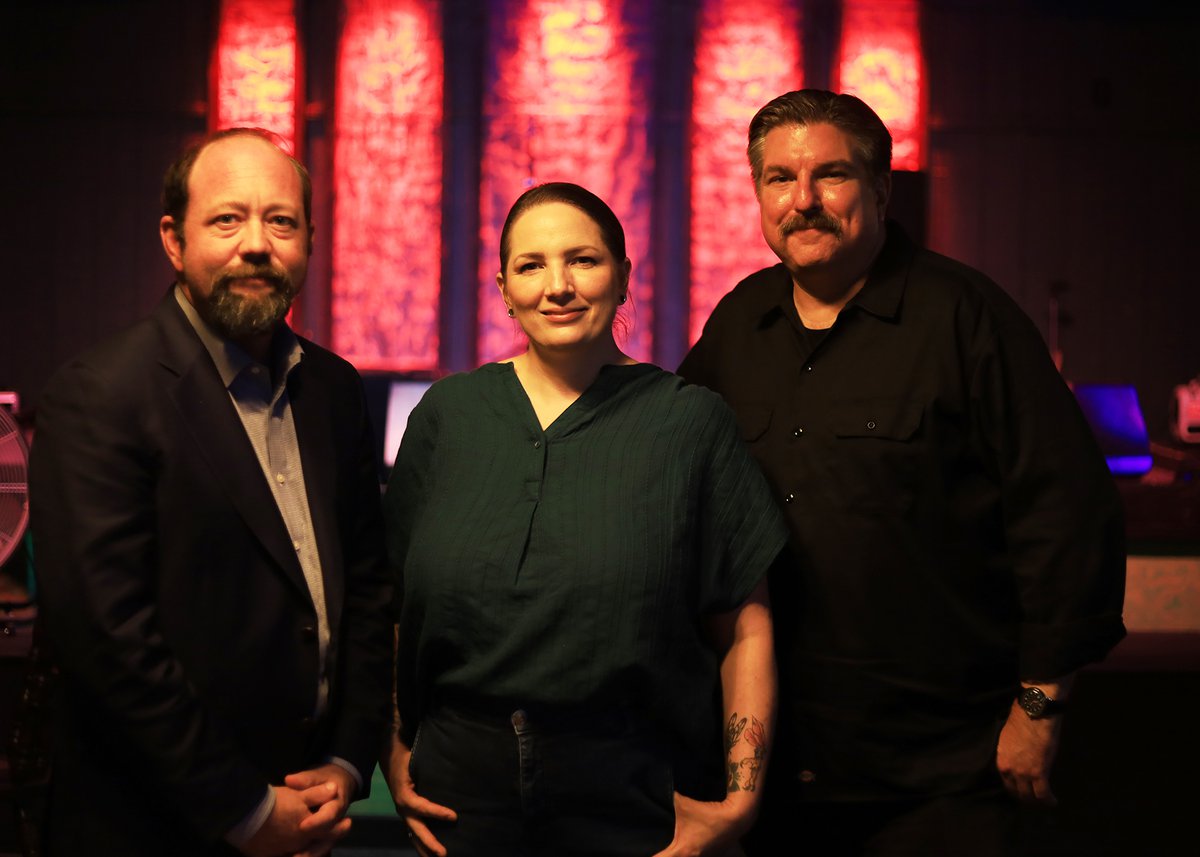A few weeks ago, the Cicada was ready to file its own obituary.
The small, independent music venue on South Main Street in Fort Worth had weathered plenty since opening in 2021. But this summer, co-owner Tyler Stevens and her husband, John, faced a storm that seemed impossible to weather: a sudden and unexpected rent increase, dwindling crowds, and a broken air conditioner amid a sweltering summer. For a place built on community and creativity — a haven for singer-songwriters, poets, burlesque performers, DJs, and anyone looking for a place to belong — it felt like the end.
“Honestly, after looking at everything, I was kind of ready to give up,” Tyler recalls. “It felt like the walls were closing in, and I wasn’t sure if we could keep going.”
Her employees took the initiative to organize the “Save the Cicada ” benefit themselves and surprised her with it during a particularly low moment, encouraging her not to give up. She responded by agreeing to see how things would unfold.
The benefit turned out to be a watershed moment. For two nights, local musicians took over the stage, and the venue’s regulars — a mix of artists, friends, and loyal patrons — showed up in force. “I was incredibly thankful and surprised at the people who came out and the bands that they were able to procure and some of the sponsors,” Tyler says. “It was a really, really great day.”
The community’s support continued beyond the initial benefit. About a week later, she posted again, sharing that while the benefit had gone well, they still needed more support and were close to their goal. This prompted even more donations, reflecting the passion people had for keeping the place open.
This outpouring of support caught the attention of Tom Martens, Vice President of Creative Film and Music for Visit Fort Worth, and Joe Morrison, an attorney with Mullen & Mullen Injury Law Firm in Dallas. The pair connected with Tyler soon after the crisis broke and recognized the venue’s importance in the local arts scene.
“When we heard from Tyler and just the social media post about the potential of losing another music venue, we just couldn’t let that happen,” Tom says. “Every local band is somebody’s local band, and we need that opportunity for them to be the next big thing. But you’ve got to start somewhere.”
Joe agrees. “If you’re a young band, you have to have somewhere to go play, right? Otherwise, you can’t go from… some people can go viral with a mixtape, but the odds of that are even smaller than just a band reaching a certain point anyway.”
Mullen & Mullen, the firm behind last year’s JAMBALOO Music Festival, saw an opportunity to support venues like the Cicada year-round. They partnered with Visit Fort Worth to create the JAMBALOO Venue Prize — a $20,000 annual grant awarded to one independent DFW-area venue starting in 2026.
“The Cicada is the first recipient,” Joe says. “It fits with the ethos of what we’re trying to do — support independent venues and local artists.”
Tyler calls the grant a lifeline. “I’m still kind of absorbing what this means. It’s a wonderful opportunity to get what we needed to take us out of the danger zone and put us back to where we can have a fighting chance again.”
From the beginning, the Cicada aimed to be more than just a music venue. Tyler had experience running Tin Panther, a previous venue that closed due to real estate challenges and the pandemic. When the space on South Main opened up, Tyler jumped on it.
“I was able to swoop the place up,” she says. “I had a couple of people ask me, ‘What makes you think you can do a music venue in the same place that just failed?’ And I was like, ‘I’m trying to do something more than a music venue.’”
That “something more” means a third space — a place to gather beyond home or work, a place that hosts live shows but also art nights, plant swaps, dog adoption markets, and more. The venue is open every day from 2 p.m. to 2 a.m. and hosts jazz on Sundays, as well as multiple band bills on Fridays and Saturdays.
The Cicada’s stage serves as a sanctuary for original voices — from avant-garde DJs to touring indie acts and local jazz collectives. Tyler notes that smaller bands often struggle to find performance spaces in Fort Worth. She says losing another stage would be a major blow for local musicians, as few venues offer a true show experience beyond a makeshift PA in a small bar.
Inside, the vibe is casual and inviting — with mismatched chairs, low lighting, local art on the walls, and a small stage raised just enough so every attendee has a clear view. The bar feels like an integral part of the room, rather than its focal point.
Tyler dreams of expanding the music calendar beyond Fridays and Saturdays. “I would love for the community to start coming out more. The more that you guys come out, the more music that we can afford to do.”
She also wants to deepen collaboration with local visual artists, paying them to create murals and merchandise, and giving back to the community that has supported the Cicada so fiercely.
“The future is all about continuing to support the community that supports us and giving back in whatever ways we can,” she says.
As Fort Worth’s music scene evolves, the Cicada’s survival reminds us how much local venues matter — as incubators for art, culture, and connection.
“We almost gave up,” Tyler says. “But we’re still here. And now we have a chance to build something stronger.”
